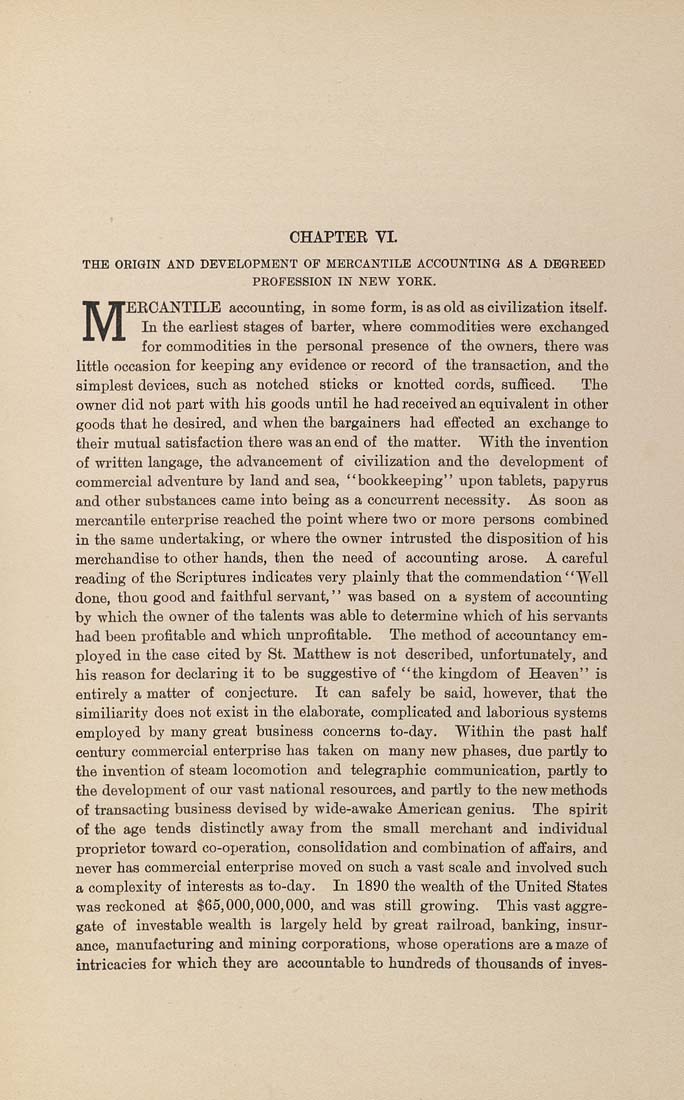CHAPTER VI.
THE ORIGIN AND DEVELOPMENT OF MERCANTILE ACCOUNTING AS A DEGREED
PROFESSION IN NEW YORK.
MERCANTILE accounting, in some form, is as old as civilization itself.
In the earliest stages of barter, where commodities were exchanged
for commodities in the personal presence of the owners, there was
little occasion for keeping any evidence or record of the transaction, and the
simplest devices, such as notched sticks or knotted cords, sufficed. The
owner did not part with his goods until he had received an equivalent in other
goods that he desired, and when the bargainers had effected an exchange to
their mutual satisfaction there was an end of the matter. With the invention
of written langage, the advancement of civilization and the development of
commercial adventure by land and sea, "bookkeeping" upon tablets, papyrus
and other substances came into being as a concurrent necessity. As soon as
mercantile enterprise reached the point where two or more persons combined
in the same undertaking, or where the owner intrusted the disposition of his
merchandise to other hands, then the need of accounting arose. A careful
reading of the Scriptures indicates very plainly that the commendation "Well
done, thou good and faithful servant," was based on a system of accounting
by which the owner of the talents was able to determine which of his servants
had been profitable and which unprofitable. The method of accountancy em¬
ployed in the case cited by St. Matthew is not described, unfortunately, and
his reason for declaring it to be suggestive of "the kingdom of Heaven" is
entirely a matter of conjecture. It can safely be said, however, that the
similiarity does not exist in the elaborate, complicated and laborious systems
employed by many great business concerns to-day. Within the past half
century commercial enterprise has taken on many new phases, due partly to
the invention of steam locomotion and telegraphic communication, partly to
the development of our vast national resources, and partly to the new methods
of transacting business devised by wide-awake American genius. The spirit
of the age tends distinctly away from the small merchant aud individual
proprietor toward co-operation, consolidation and combination of affairs, and
never has commercial enterprise moved on such a vast scale and involved such
a complexity of interests as to-day. In 1890 the wealth of the United States
was reckoned at 165,000,000,000, and was still growing. This vast aggre¬
gate of investable wealth is largely held by great railroad, banking, insur¬
ance, manufacturing and mining corporations, whose operations are amaze of
intricacies for which they are accountable to hundreds of thousands of inves-
|








